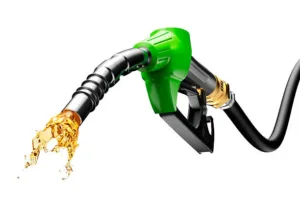Biofuels and biodiesel:

With climate change at the forefront of our minds, the search for clean energy solutions is hotter than ever. Biofuels and biodiesel are often mentioned, but what exactly are they, and how are they different? This blog post will clear up the confusion and empower you to understand these powerful alternatives to traditional fossil fuels.
Biofuels and Biodiesel: A Comparison of Nature’s Fuel Tank
1. Biofuels:
Imagine filling your car with fuel made from plants! That’s the basic idea behind biofuels. They are renewable energies derived from organic materials like plants, algae, and even waste products.
Biofuels offer several environmental benefits, including:
1. Reduced greenhouse gas emissions: burning biofuels releases carbon dioxide, but significantly less than fossil fuels. Plants absorb CO2 as they grow, creating a near-closed loop in terms of carbon emissions.
2. Renewable Source: Unlike fossil fuels with a finite supply, biofuels are constantly replenished through natural processes.
3. Domestic Production: Biofuels can be produced from locally grown crops, reducing dependence on foreign oil and improving energy security.
Exploring Various Types of Biofuels
There are several types of biofuels, each with a different production process:
1. Bioethanol: Made from fermented sugars found in corn, sugarcane, and other crops, bioethanol can be blended with gasoline to reduce emissions.
2. Biodiesel: Produced from vegetable oils, animal fats, and used cooking oil, biodiesel is a clean-burning alternative to traditional diesel fuel.
3. Biogas: Produced from the decomposition of organic matter like food scraps and manure, biogas can be used for electricity generation or transportation fuel.
Read More: How to Earn a Living with Biofuel Development
2. Biodiesel:

Biodiesel is a specific type of biofuel specifically designed to replace petroleum-based diesel fuel.
Here’s a closer look at why biodiesel is the champion of clean diesel and its key features:
1. Feedstock: Biodiesel is typically made from vegetable oils like soybean, palm, or even recycled cooking oil.
2. Production Process: Biodiesel is produced through a process called transesterification, which converts the triglycerides in vegetable oils into fatty acid methyl esters (FAME), the main component of biodiesel.
The Benefits of Biodiesel Over Traditional Diesel Fuel
Biodiesel offers several advantages:
1. Reduced Emissions: Biodiesel burns cleaner, releasing significantly lower levels of harmful pollutants and greenhouse gases.
2. Improved Lubricity: Biodiesel acts as a natural lubricant, potentially improving engine performance and longevity.
3. Biodegradability: In the case of spills, biodiesel is biodegradable, minimising environmental damage compared to petroleum diesel.
Biofuels vs. Biodiesel: Breaking Down the Key Differences

While both biofuels and biodiesel are clean energy options, there are some key distinctions:
1. Specificity: Biofuels is a broader term encompassing various renewable fuels derived from organic matter. Biodiesel is a specific type of biofuel designed as a replacement for diesel fuel.
2. Feedstock: Biofuels can be produced from diverse organic materials like plants, algae, and even waste. Biodiesel primarily uses vegetable oils and animal fats.
3. Production Process: The production processes differ. Biofuels can involve fermentation (ethanol) or other methods, depending on the source material. Biodiesel uses transesterification to convert oils into FAME.
4. Applications: Biofuels, like ethanol, are often blended with gasoline for use in gasoline-powered vehicles. Biodiesel, on the other hand, can be used directly in most diesel engines with minimal modifications.
Read More: Why Biofuel Blends Are Key to Reducing Climate Change
The Future of Biofuels and Biodiesel
Biofuels and biodiesel hold immense promise for a cleaner, more sustainable future. Here’s a glimpse of what’s on the horizon:
1. Advanced Biofuels: Scientists are constantly researching and developing next-generation biofuels from sources like algae, which offer higher yields and require less land.
2. Improved Production Processes: Research is ongoing to optimise biofuel production methods, making them more efficient and cost-competitive with fossil fuels.
3. Policy Support: Governments around the world are increasingly implementing policies that incentivize biofuel production and use, boosting their commercial viability.
Making Informed Choices: Biofuels and You

Understanding biofuels and biodiesel empowers you to make informed choices as a consumer and advocate. There is no doubt that these new technologies have the potential to contribute to a cleaner future, even though they aren’t without challenges, such as the issue of ensuring sustainable feedstock production. Here are some key considerations:
1. Choose Biofuel Options: When available, opt for biofuel blends at the gas pump or bioheat for your home. Look for brands committed to sustainable biofuel production practices.
2. Reduce Your Carbon Footprint: Conserve energy at home, choose sustainable transportation options like cycling or electric vehicles, and support companies committed to renewable energy.
Read More: Exploring Quirky Sustainable Energy Solutions
Conclusion:
Biofuels and biodiesel are not just alternatives; they’re powerful tools for building a cleaner, more sustainable future. The use of renewable energy can be made possible by appreciating its benefits, embracing its differences, and supporting its development. Remember, every action counts! So, join the movement, embrace green powerhouses, and fuel a brighter tomorrow!










